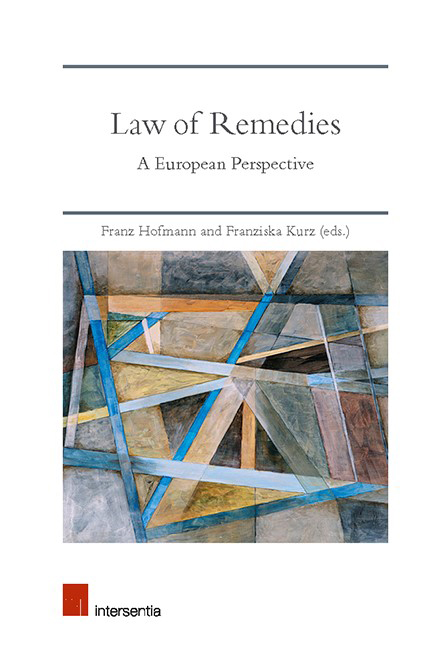Book contents
- Frontmatter
- Contents
- List of Cases
- List of Authors
- PART I THE ISSUE OF REMEDIES
- Introduction to the ‘Law of Remedies’
- Remedies in English Private Law – A ‘Stand-Alone’ Research Area?
- Remedies in Private Law from a German Perspective
- Rights and Remedies in Public Law
- Economics of Remedies: The Perspective of Corporate Law
- PART II MECHANISMS OF ENFORCEMENT
- PART III FUNCTIONS OF REMEDIES
- PART IV UNDERLYING PRINCIPLES
- PART V REMEDIES IN CONTRACT LAW AND INTELLECTUAL PROPERTY
- Index
- About the Editors
Rights and Remedies in Public Law
from PART I - THE ISSUE OF REMEDIES
Published online by Cambridge University Press: 09 November 2019
- Frontmatter
- Contents
- List of Cases
- List of Authors
- PART I THE ISSUE OF REMEDIES
- Introduction to the ‘Law of Remedies’
- Remedies in English Private Law – A ‘Stand-Alone’ Research Area?
- Remedies in Private Law from a German Perspective
- Rights and Remedies in Public Law
- Economics of Remedies: The Perspective of Corporate Law
- PART II MECHANISMS OF ENFORCEMENT
- PART III FUNCTIONS OF REMEDIES
- PART IV UNDERLYING PRINCIPLES
- PART V REMEDIES IN CONTRACT LAW AND INTELLECTUAL PROPERTY
- Index
- About the Editors
Summary
INTRODUCTION
It is fair to say that the concept of remedies does not play a significant role in contemporary public law doctrine. Certainly the English expression ‘remedies’ is used frequently in English publications on public law. This applies to works from common law authors as well as to works from continental scholars writing in English. But ‘remedies’ then does not have an autonomous specific meaning. It is rather a generic term used to assemble the various ways of redress against public authorities. Normally, two basic elements are identified as such remedies in public law: judicial review and state liability. For instance, in a major treatise on EU administrative law, Paul Craig states that in EU law, as well as in every domestic legal system, there are two main remedies available ‘for holding public bodies to account’: annulment and compensation. This proposition is representative for the common view.
In this chapter this view will be referred to as the ‘standard picture’ of a public law of remedies and it will be presented and described in more detail. The author is of the opinion that it represents an approach that is not convincing. The standard picture is flawed. An alternative, basically a scheme of basic legal positions arising from public law norms will be introduced, and it will be shown how these positions are linked to particular claims. Some of these claims form a branch of law that many scholars are not aware of. In German, it is sometimes called Reaktionsrecht which can be translated literally as ‘law of reactions’ or ‘law of responses’. The law of reactions could be seen as a regime of remedies, yet then remedies are not understood in the generic sense just introduced, but rather in a new, narrow sense.
Eventually, the ‘law of reactions’ will not be linked with the idea of remedies. For the law of reactions is purely substantive law. It gives the grounds for action, whereas the term ‘remedies’ oft en refers to lawsuits or actions themselves (and sometimes even to their outcomes). Or, to put it differently, according to a common view ‘the law of remedies falls somewhere between substance and procedure’.
- Type
- Chapter
- Information
- Law of RemediesA European Perspective, pp. 61 - 80Publisher: IntersentiaPrint publication year: 2019



